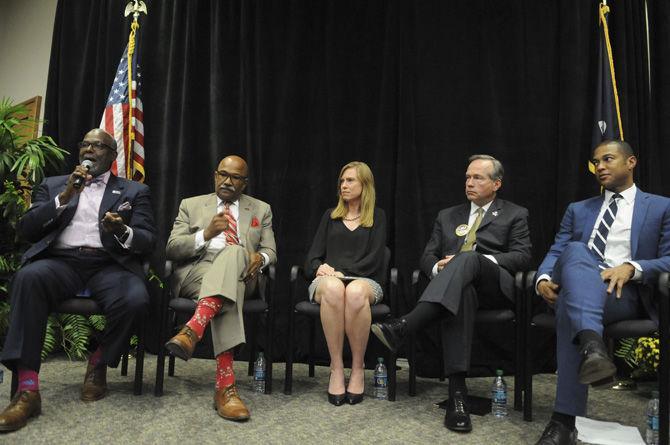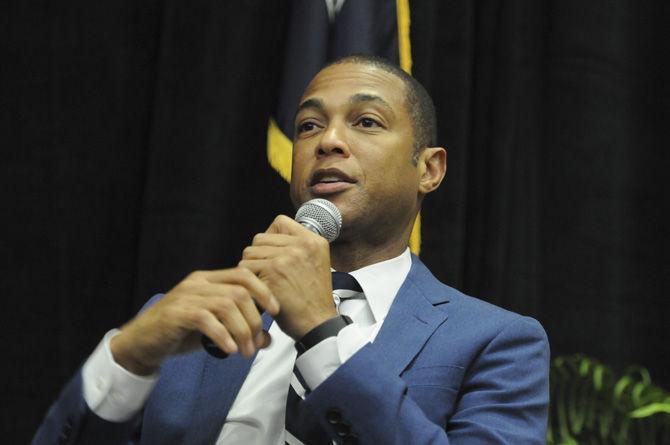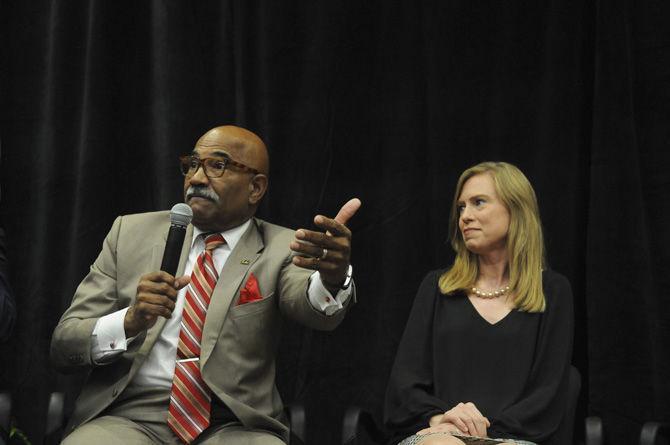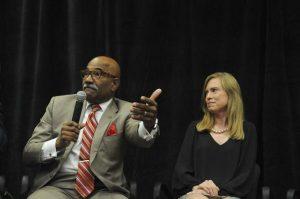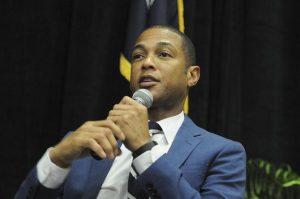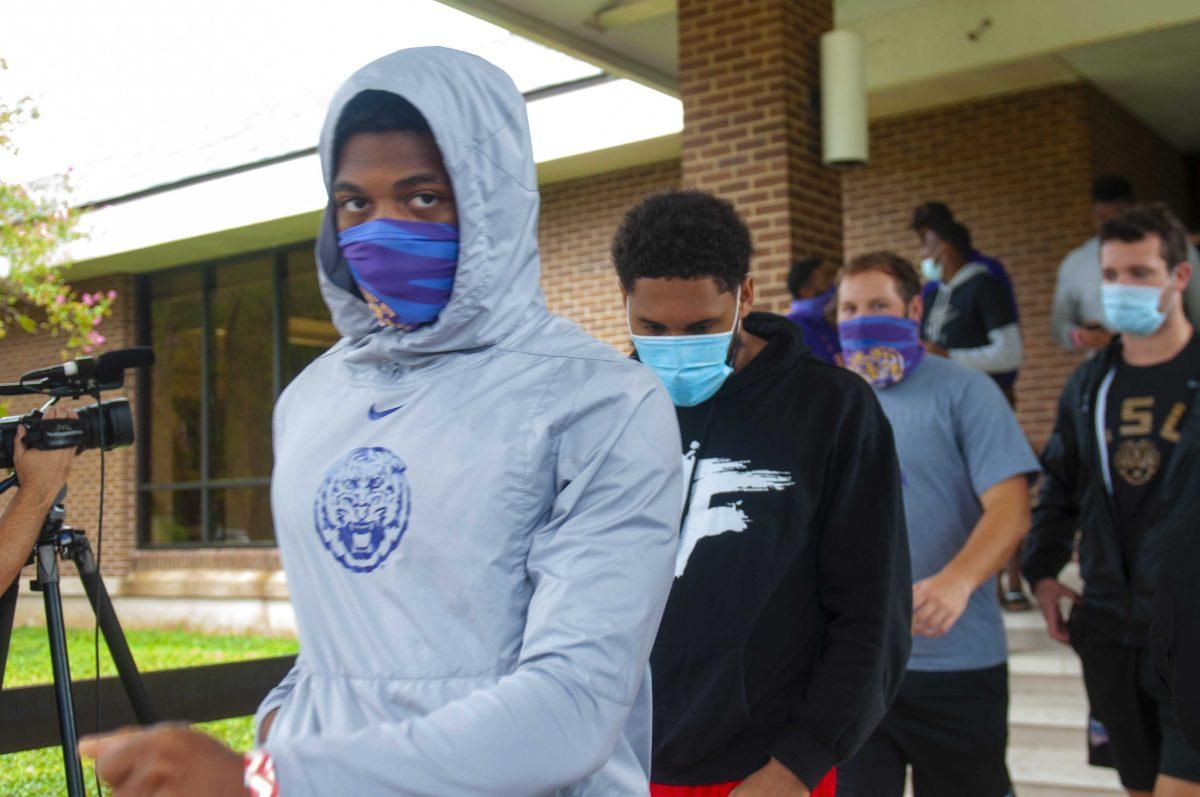At the conclusion of LSU’s symposium on race and democracy Tuesday night, Norman Francis, Xavier University president emeritus and civil rights leader, called himself a living example of “coming through” an American system, which was intent on “taking away my dignity and opportunity to fulfill my God-given talents.”
For 34 years, he said, he struggled as an African American man under a separate-but-equal system mandated by the Plessy v. Ferguson 1896 Supreme Court decision until it was eventually overturned.
The Plessy v. Ferguson decision arouse from a New Orleans case in which Homer Adolph Plessy, who was one-eighth black, refused to sit in the “blacks only” street car. The high court ruled that equal but separate accommodations for whites and blacks did not…do not violate the equal protection clause of the Fourteenth Amendment”.
Francis called that decision the “most despicable action a legislature, or state, could do in this country. It was despicable; it was bondage. And yet, we survived.”
Because of it, he said, Louisiana and other states lost talented young blacks and who had much to give and who could have moved the state forward.
In spite of that court case, Francis becane the first African-American admitted to Loyola University and Loyola University Law School in New Orleans. He eventually was named president of the Xavier University.
Upon graduation in 1955, Francis said he knew he was meant to go into education and “create a new army of young people” to whom one day pass he could pass the torch.
“In every student in my 47 years, I saw myself.”
Beginning the movement behind social change starts with education, he said. “We have a system in this country that educated African-Americans starting in 1855, (we) struggled through all of it, but we now produce the generals, the judges, the mayors.”
Throughout, Francis reminded symposium attendees that anyone without faith is lost. “You have to believe that what is going to happen, is going to happen and work to make sure that it does.”
Preceding Francis to the podium was CNN host Don Lemon, a Baton Rouge native and LSU alum, who posed Lemon posed questions about the role of media in racial situations and doing what is right as a journalist and an African-American man.
Summarizing the genesis of the symposium — the fatal police shooting of Alton Sterling in Baton Rouge, followed the next day by the similar death of Philando Castile in Minnesota and the subsequent police ambushes in Dallas and Baton Rouge, said the endless videos of those events desensitize viewers to such things.
“We basically watched them die over and over through videotape on television and online; repeated, repeated and repeated. We’ve become desensitized to it.”
Lemon urged the audience to rethink the textbook history that he says has been “white-splained.”
“The history of America is the history of the America you see dying on the videotape. The history of America is a police officer who is forced to face that history daily in the most violent situations; sometimes not even knowing why he or she is seen as the enemy or the oppressor…In order to understand the facts of it all, as Americans, we have to educate ourselves.”
Lemon blames money, politics and power as restrictive means in the daily news business. The media, himself included, is not doing a good enough job of explaining and dealing with race, he said.
The focus of the two-day symposium was awareness and an opportunity to share ideas, thoughts and concerns, said LSU President, Dr. F. King Alexander.
“It is very important that we come together and talk about rational, civil dialogue that raises awareness on all these issues. I hope this symposium keeps the dialogue going,” said Alexander.
“I also hope we come back with great recommendations that our university can use to keep moving forward. It doesn’t end tonight.”
Moment or Movement ends with speeches from Norman Francis, Don Lemon
October 5, 2016
The entire panel during the Presidential Symposium on Oct. 4, 2016 in the Dalton J. Woods Auditorium of the Energy, Coast, and Environment Building.
More to Discover



